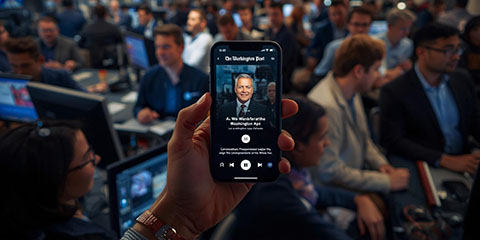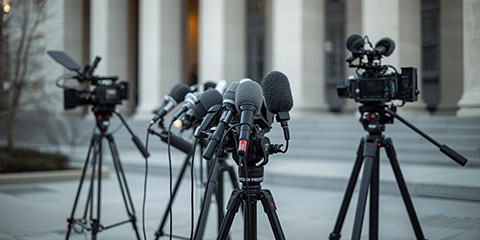By-line: A contentious issue
JournalismPakistan.com | Published 11 years ago | Steve Manuel
Join our WhatsApp channel
The scene is familiar. A fired up reporter, a stubborn sub-editor or producer, the newsroom looks on with rapt attention as accusations and counter accusations fly thick and fast. There are sniggers of amusement, murmured mutterings of agreement and even some ribald encouragement.
A senior steps in. There are attempts at reasoning and reconciliation. An unhappy truce is brought about but the bitterness continues to linger. It will not die down. Not in the days to come, not in weeks, not ever.
“That was a by-line story,” the aggrieved reporter continues to grumble. “I worked hard at it and he didn’t give me a by-line. I deserved credit.”
“There was nothing new there. It’s all been covered before. It was not well written either and, worst of all, it failed to have impact,” the sub evenly tells his news desk colleagues. They nod.
But then we all know a by-line is always a contentious issue.
If the story is weak and it is by-lined there will be accusations that the subs favor the reporter or that the reporter has clout; he’s the editor’s blue-eyed boy. The subs will insist that this was not the case. “It merited a by-line,” they will say.
If the story is by-lined because the reporter is a senior staffer and always gets a by-line, the subs will say, “We have to give him a by-line otherwise….”
Sometimes there will be a breaking story, a truly big story by an inexperienced reporter, badly written, badly put together, breaking all the principles of report writing, but a decision is made; it’s re-written, edited and by-lined. The reporter gets the credit.
In this case two things happen:
a) The reporter struts about bragging about his great story. Yes it was a good story, but did he make it so?
b) The news desk will try to own the story saying the reporter, even though he got the story, needed to go back to elementary school and learn how to write.
The truth is somewhere in between. Did the story deserve a by-line?
Yes it did. It was a good story.
Then there is the opposite. You have a reporter who has been around for a while. He steps into the newsroom strutting like a peacock, telling any and everybody who will listen that he has the story of the century. He doesn’t say it, he demands it. He has his name emblazoned in bold under the headline he’s given.
The story goes to one of the better subs. The sub reads through it and shakes his head. The story lacks substance, is too long, has useless detail, is short on sources, has spelling mistakes and compiled upside down.
The sub gives his own headline, he works on the story and he takes out the by-line. As a courtesy he gives the reporter the rehashed version of the story before putting it on the page. The reporter reads it and promptly stomps off to the editor’s office.
The result: The editor usually agrees with the news desk.
But why, why hand in a story that doesn’t merit a by-line?
It happens much too frequently and often brazenly.
Had this reporter once who mostly lounged about the newsroom, talking to female staff and enlightening them on various conspiracy theories he was privy to. In over a week, I got not one report from this boisterous pretender. I decided to call his bluff.
“This development at the CDA I overheard you discussing, could you perhaps put that on paper… give me a report?”
“Sure,” he said, but I could see he was shaken.
“When?” I persisted.
“Tomorrow sir,” he said and rushed out of the office.
Three days later, the news editor came to me with a half page report. “Did you ask our hero to do this story,” he inquired.
In all there were just five sentences. None of them made sense. A child could have done a better job.
It was just the excuse I needed to send this noisy distraction packing for good.
What amazes me is that many reporters today, whether in the print or electronic media, fail to understand that a by-line is earned. The story has to be good. It has to be fresh. It has to have details, sources, facts, and most certainly impact. If it has been written well, that is a bonus.
No story or report deserves a by-line just because the author of it thinks so. That’s not the way it works. If people understood this, a by-line would not be the contentious issue it is.

























